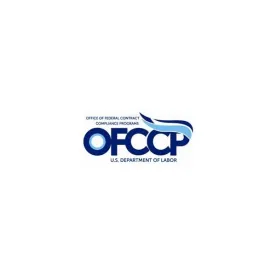In April, OFCCP proposed four new scheduling letters – one each for its establishment reviews, compliance checks, and separate but related letters for its focused reviews on Section 503 (disability) and VEVRAA (veteran) compliance. These proposed letters, if approved, would have significantly increased the burden of the submission required in the event of a review. The notice and comment period closed for these letters on June 11, with many weighing in with questions, describing burdens, and requesting changes. On July 1, OMB published notice that it would begin reviewing amended letters from OFCCP—with comments due July 29.
So, did OFCCP update its requests in light of community concerns? Largely, yes. However, in light of the new comment period, we thought it would be helpful to review each new letter, point out the places where OFCCP seems to have revised the letter based on contractor community feedback, and highlight areas where even the updated letters may have room for improvement.
What’s different? We begin with the compliance check letter and will follow with a discussion of each letter in subsequent posts.
At first glance, the compliance check letter appears largely unchanged. As with the April 2019 proposal, OFCCP seeks only three types of material: (1) “Written AAPs prepared in accordance with Executive Order 11246, Section 503, and VEVRAA”; (2) “Examples of job advertisements, including listings with the state employment services”; and (3) accommodations for persons with disabilities.
Digging deeper, there are notable changes – some that will likely reduce the burden of a compliance check and others that may increase it.
First, burden reducing changes:
- Denied Accommodation Requests. While the April 2019 proposed letter required “Requests made for accommodations by persons with disabilities, whether the requests were denied or granted” the new July 1 proposed letter only requests “Examples of accommodations made for persons with disabilities.” The requirement that denied requests be provided has been removed, which is in line with the current compliance check scheduling letter.
- Submission Logistics. The April 2019 version required that contractors submit the material to OFCCP in electronic format, and later provided an alternative to permit on-site inspection. The new July 1 proposal presumptively contemplates that the material will be made available for on‑site review but provides that “[i]n the alternative, [a contractor] can submit this information to OFCCP within 30 days of [its] receipt of this letter by mail using the U.S. Postal Service or email.” Gone is the requirement that contractors submit electronically. Perhaps more interestingly, the new letter only requires that contractors “submit” the material “using the U.S. Postal Service” within 30 days of receiving the compliance check letter – not that OFCCP receive the submission by then. How this change will play out in the field remains to be seen.
Next, changes that potentially increase the compliance check burden:
- Written AAPs. As with the April letter, the newly proposed July 1 version requires actual AAPs – not just the results of the prior year’s program. But, since April, OFCCP has updated the regulatory citations to require more. In April, the regulatory citations were to 41 CFR §§ 60-1.12(b), 300.80, 60-741-80 – record retention regulations. The July version updates the citations for the Section 503 and VEVRAA AAPs to be 41 CFR §§ 60-300.44, and 60-741.44 – which address “required contents of [Section 503 and VEVRAA] affirmative action programs.” OFCCP may interpret this expansion to require contractors submit items such as a review of its personnel process, a review of its physical and mental qualifications, and its data collection regarding disabled and veteran applicants and hires.
- Job Postings. OFCCP has also updated the citation in its requirement that contractors provide example job advertisements. Here, the additional citation includes the requirement in the Equal Opportunity Clause that the contractor agrees to list all employment openings that exist at the time of the contract and those that occur during the performance of the contract with the appropriate state employment agency. This requirement does not on its face seem to increase the burden of a compliance check, but OFCCP field representatives may interpret the additional citation to require that additional documentation be submitted to satisfy the required submission.
We encourage you to review the new scheduling letters and, if you would like to, provide comments to the Office of Management and Budget about the burdens that these updated proposals impose. Comments are due July 29th.






 />i
/>i

